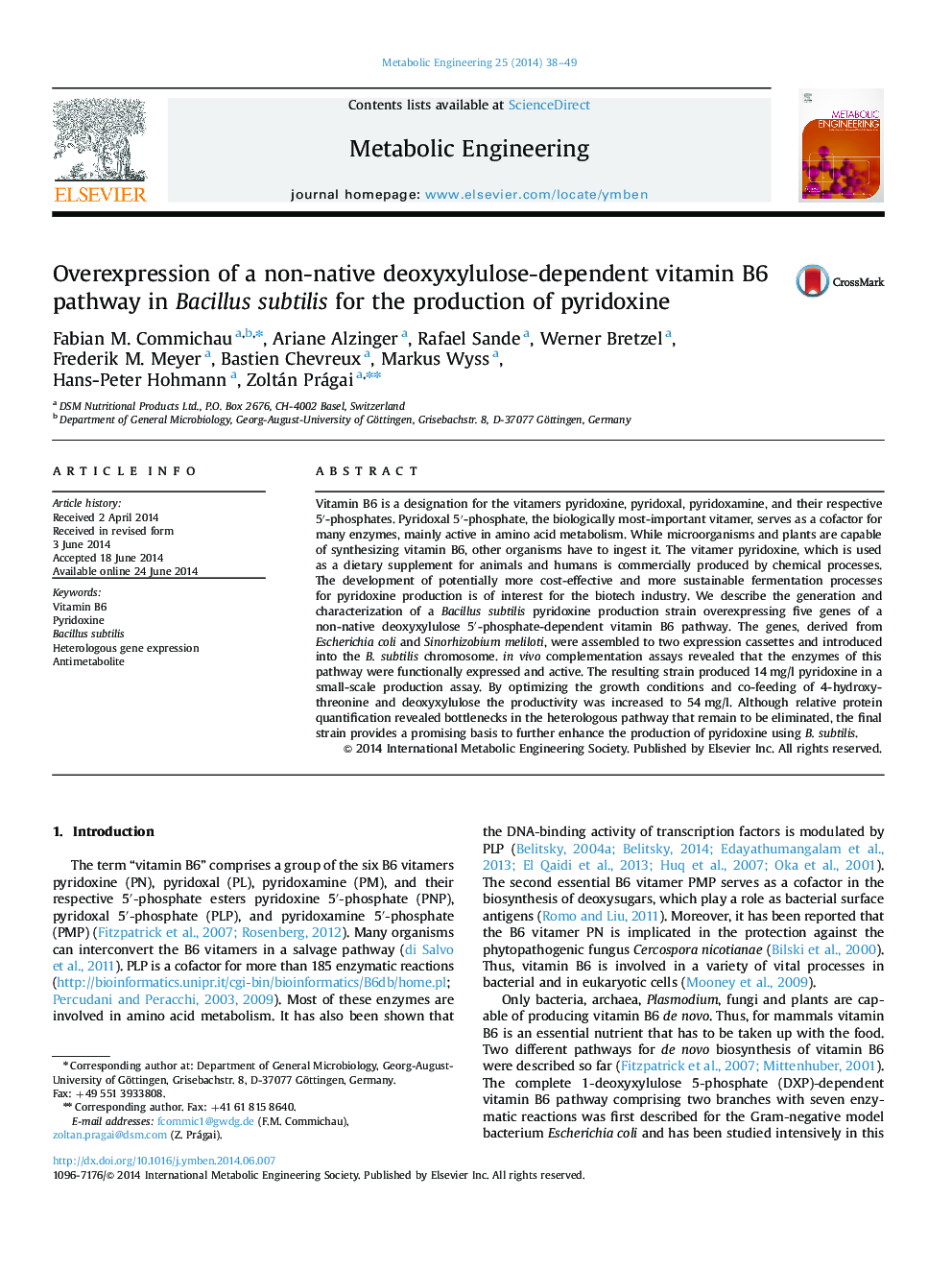| Article ID | Journal | Published Year | Pages | File Type |
|---|---|---|---|---|
| 6494554 | Metabolic Engineering | 2014 | 12 Pages |
Abstract
Vitamin B6 is a designation for the vitamers pyridoxine, pyridoxal, pyridoxamine, and their respective 5â²-phosphates. Pyridoxal 5â²-phosphate, the biologically most-important vitamer, serves as a cofactor for many enzymes, mainly active in amino acid metabolism. While microorganisms and plants are capable of synthesizing vitamin B6, other organisms have to ingest it. The vitamer pyridoxine, which is used as a dietary supplement for animals and humans is commercially produced by chemical processes. The development of potentially more cost-effective and more sustainable fermentation processes for pyridoxine production is of interest for the biotech industry. We describe the generation and characterization of a Bacillus subtilis pyridoxine production strain overexpressing five genes of a non-native deoxyxylulose 5â²-phosphate-dependent vitamin B6 pathway. The genes, derived from Escherichia coli and Sinorhizobium meliloti, were assembled to two expression cassettes and introduced into the B. subtilis chromosome. in vivo complementation assays revealed that the enzymes of this pathway were functionally expressed and active. The resulting strain produced 14Â mg/l pyridoxine in a small-scale production assay. By optimizing the growth conditions and co-feeding of 4-hydroxy-threonine and deoxyxylulose the productivity was increased to 54Â mg/l. Although relative protein quantification revealed bottlenecks in the heterologous pathway that remain to be eliminated, the final strain provides a promising basis to further enhance the production of pyridoxine using B. subtilis.
Related Topics
Physical Sciences and Engineering
Chemical Engineering
Bioengineering
Authors
Fabian M. Commichau, Ariane Alzinger, Rafael Sande, Werner Bretzel, Frederik M. Meyer, Bastien Chevreux, Markus Wyss, Hans-Peter Hohmann, Zoltán Prágai,
